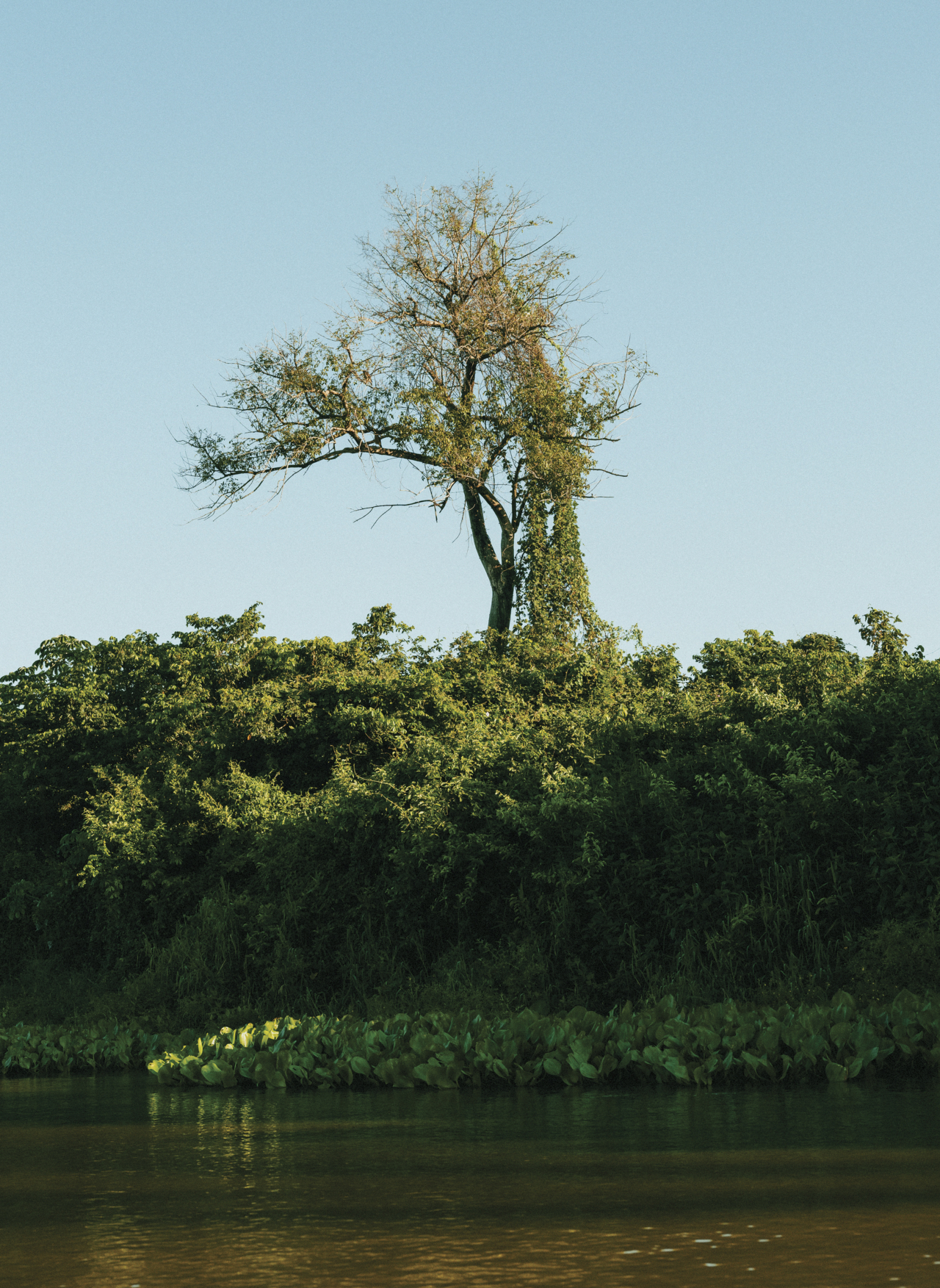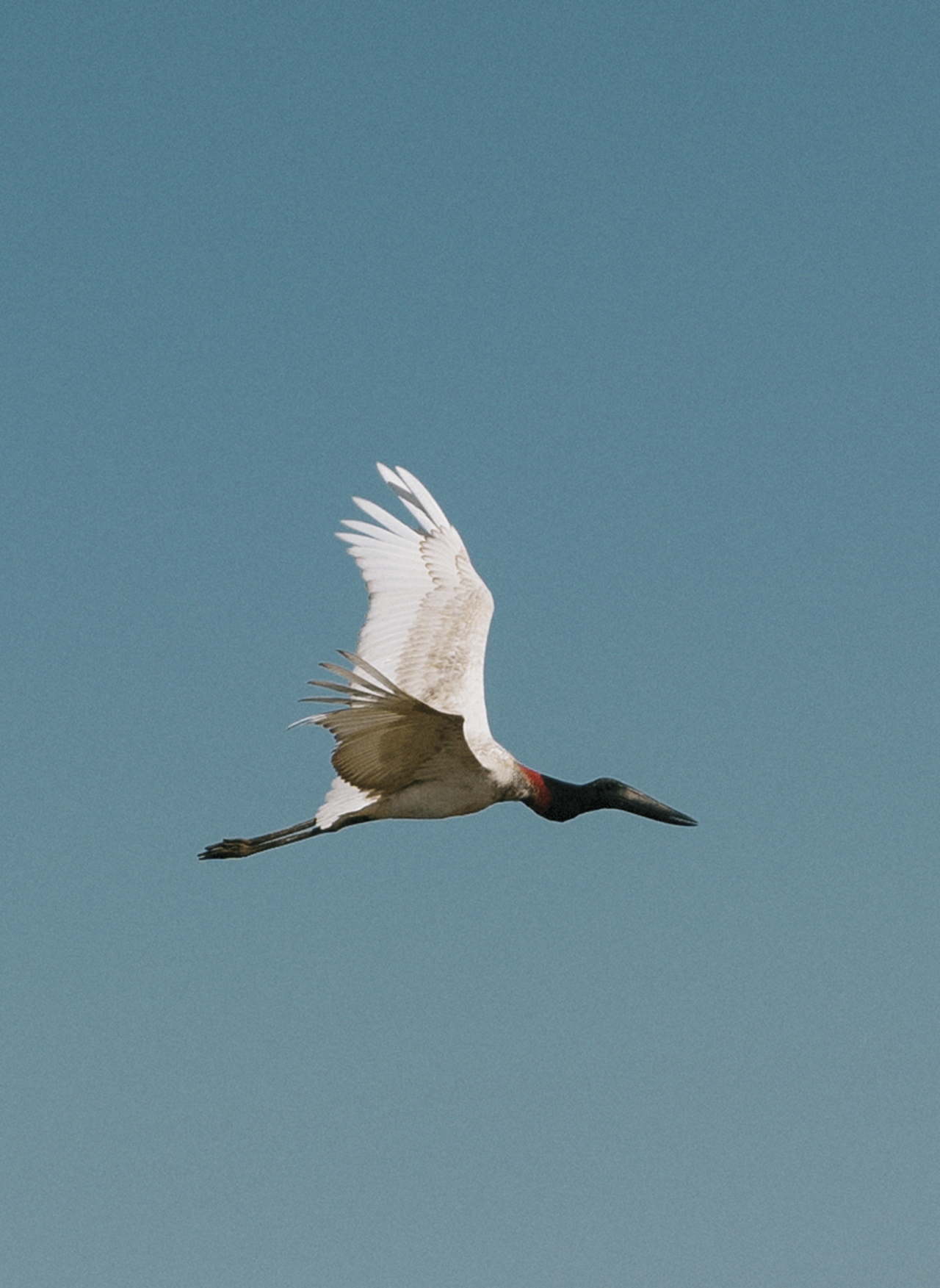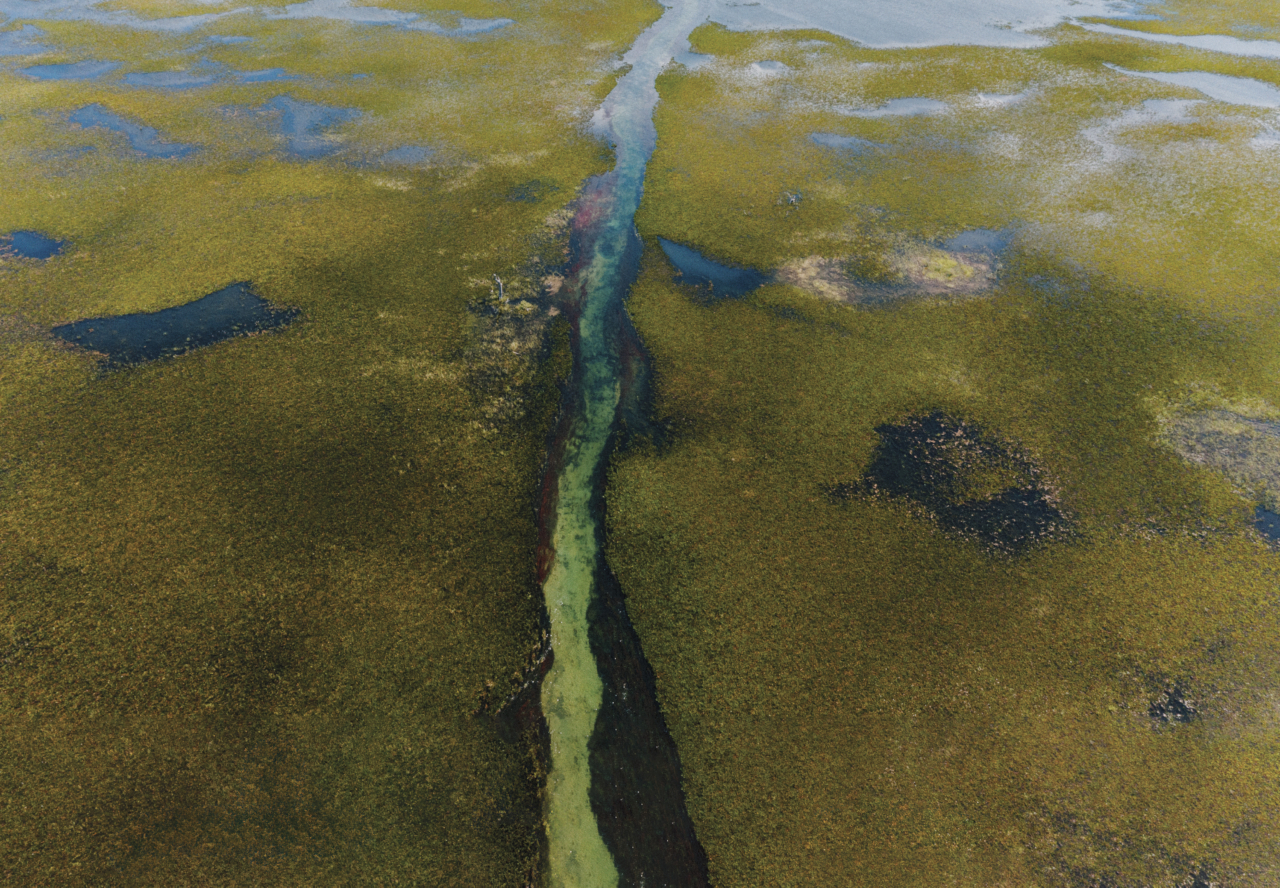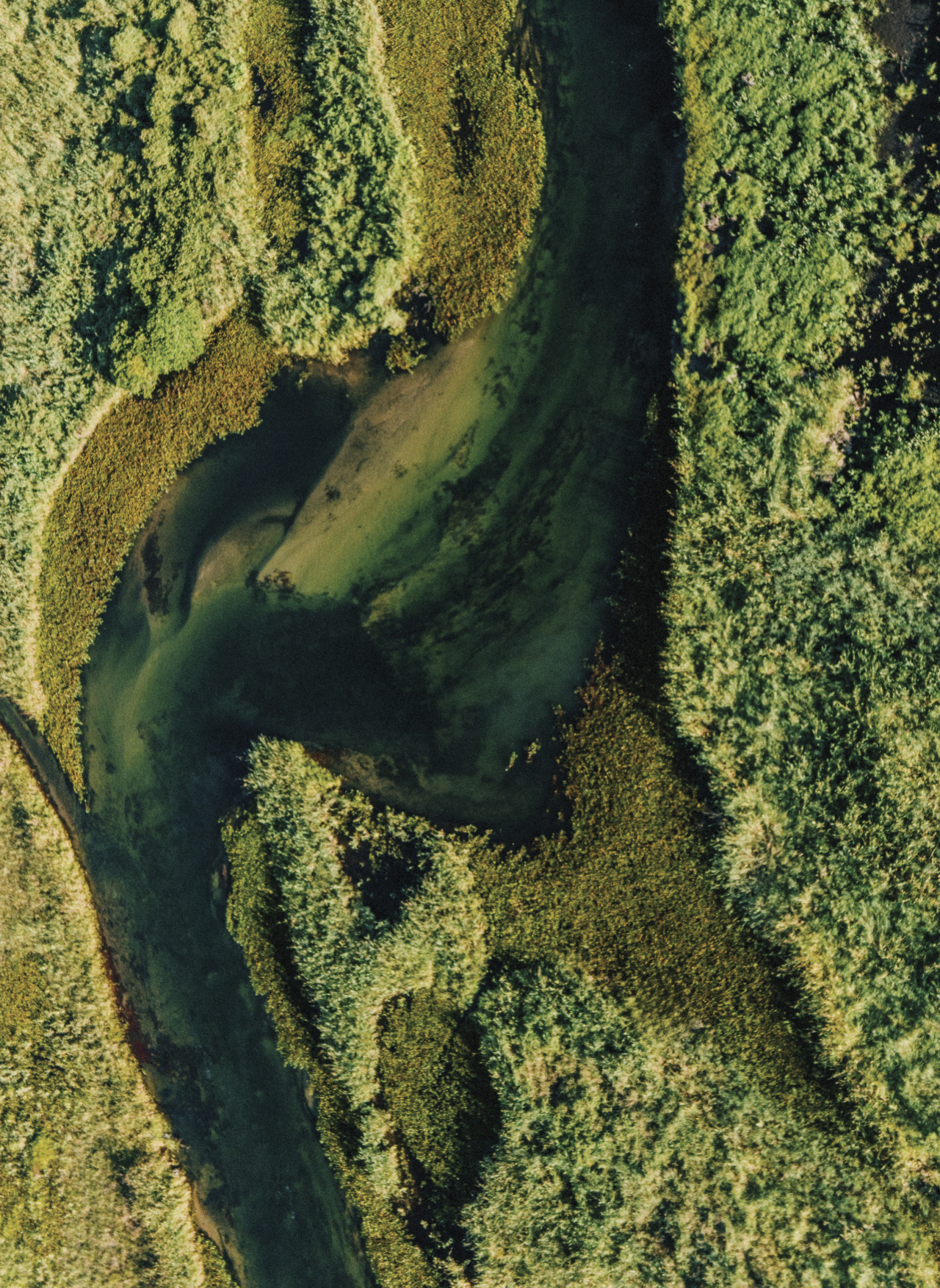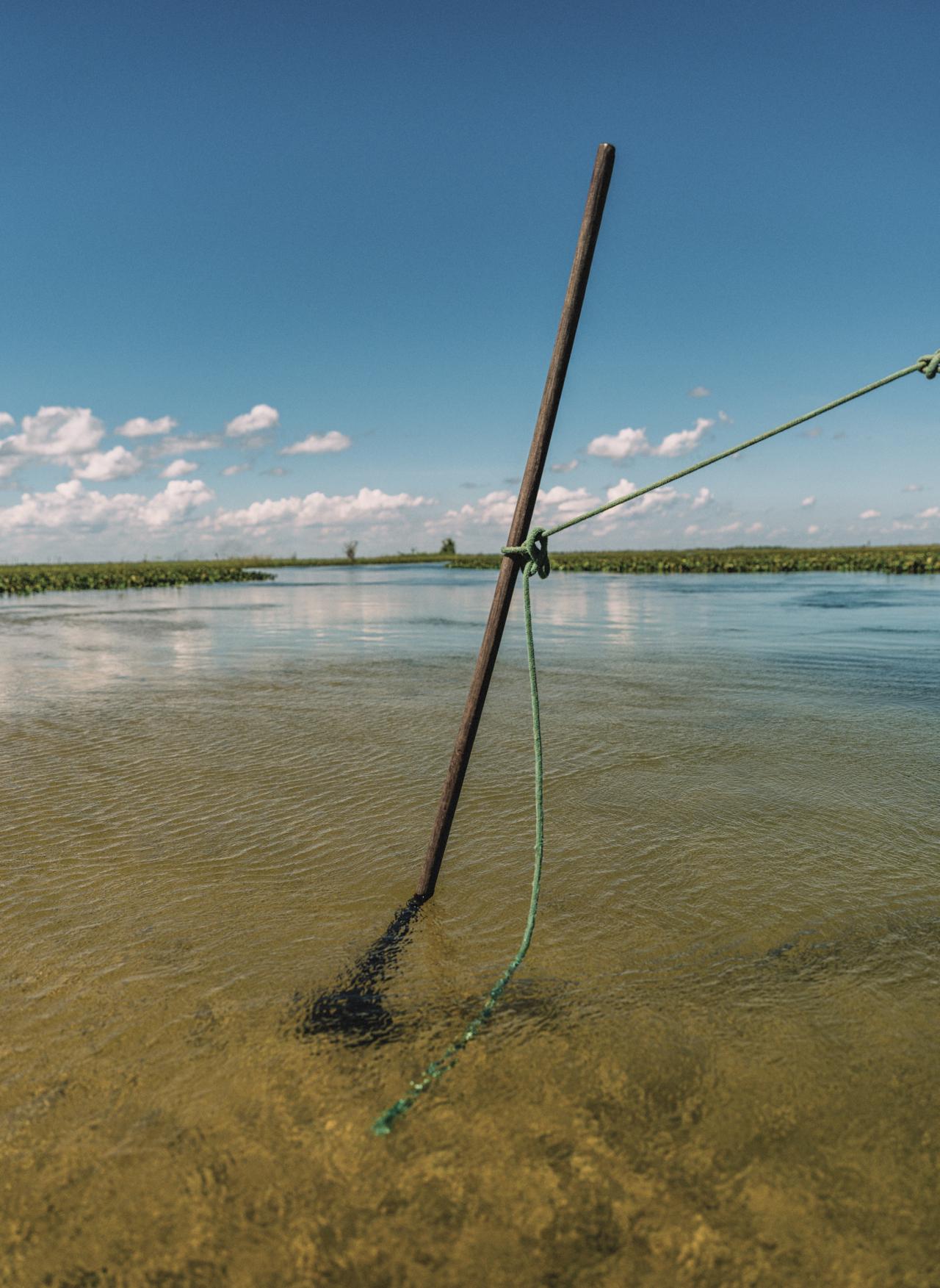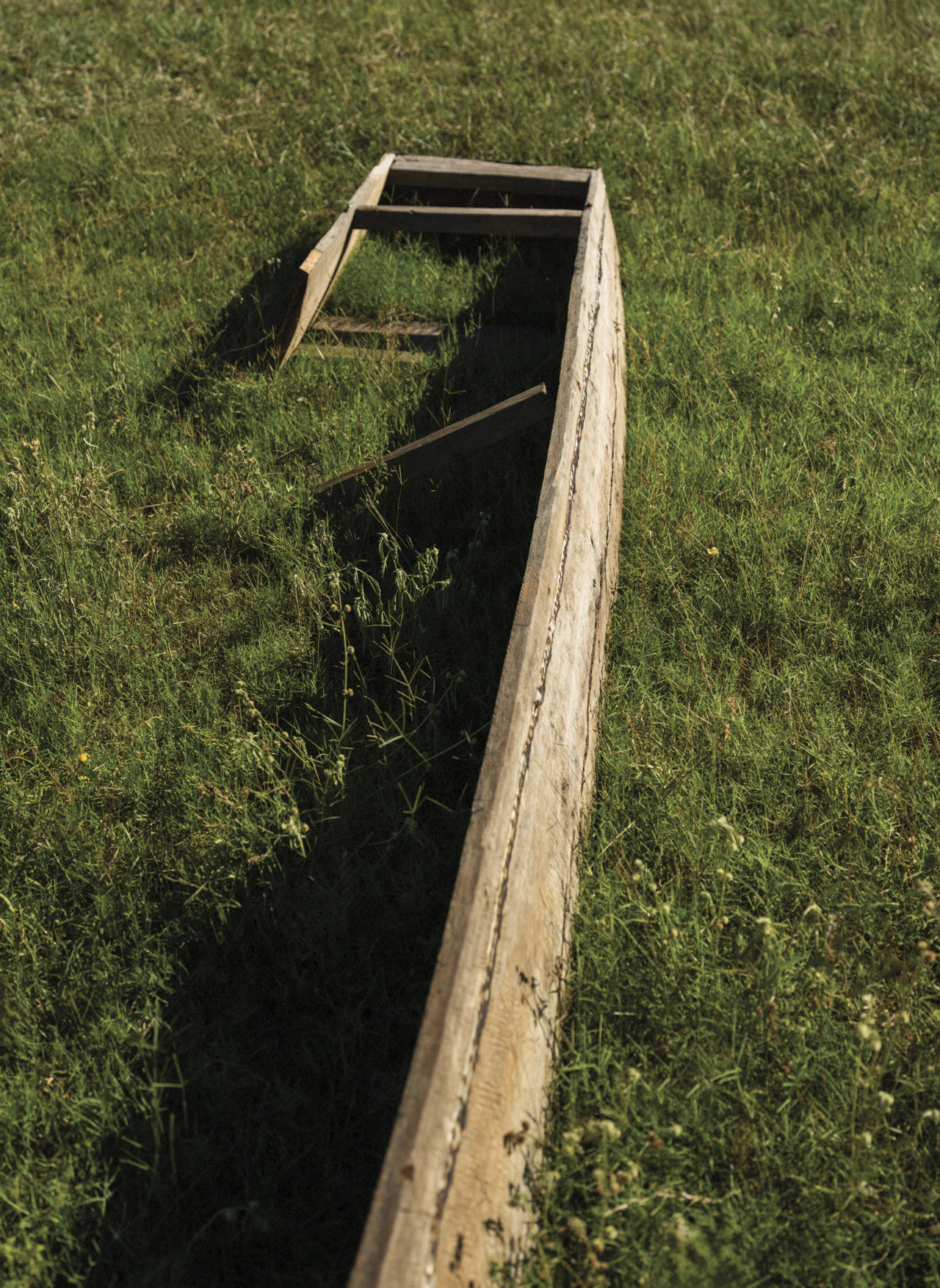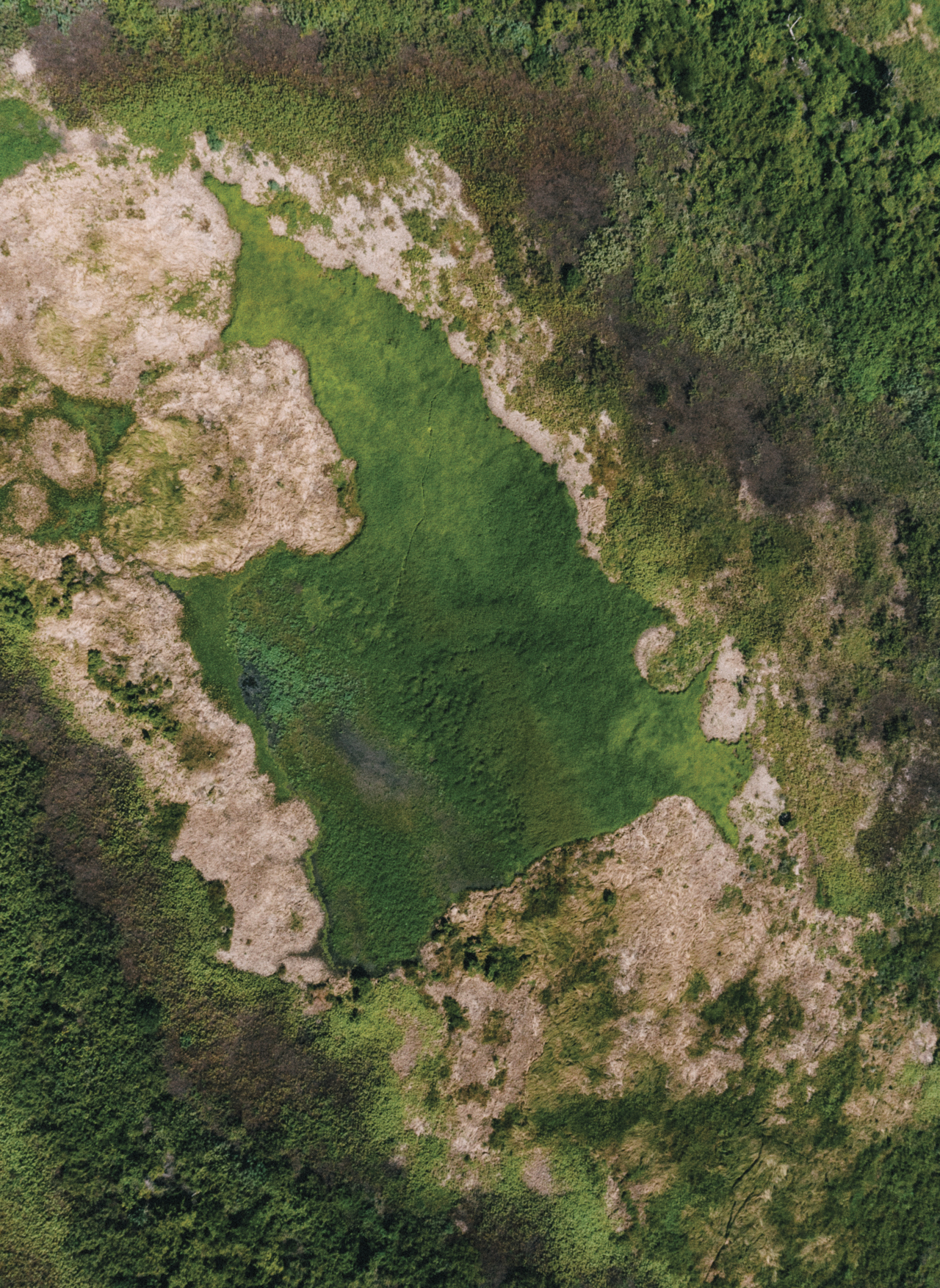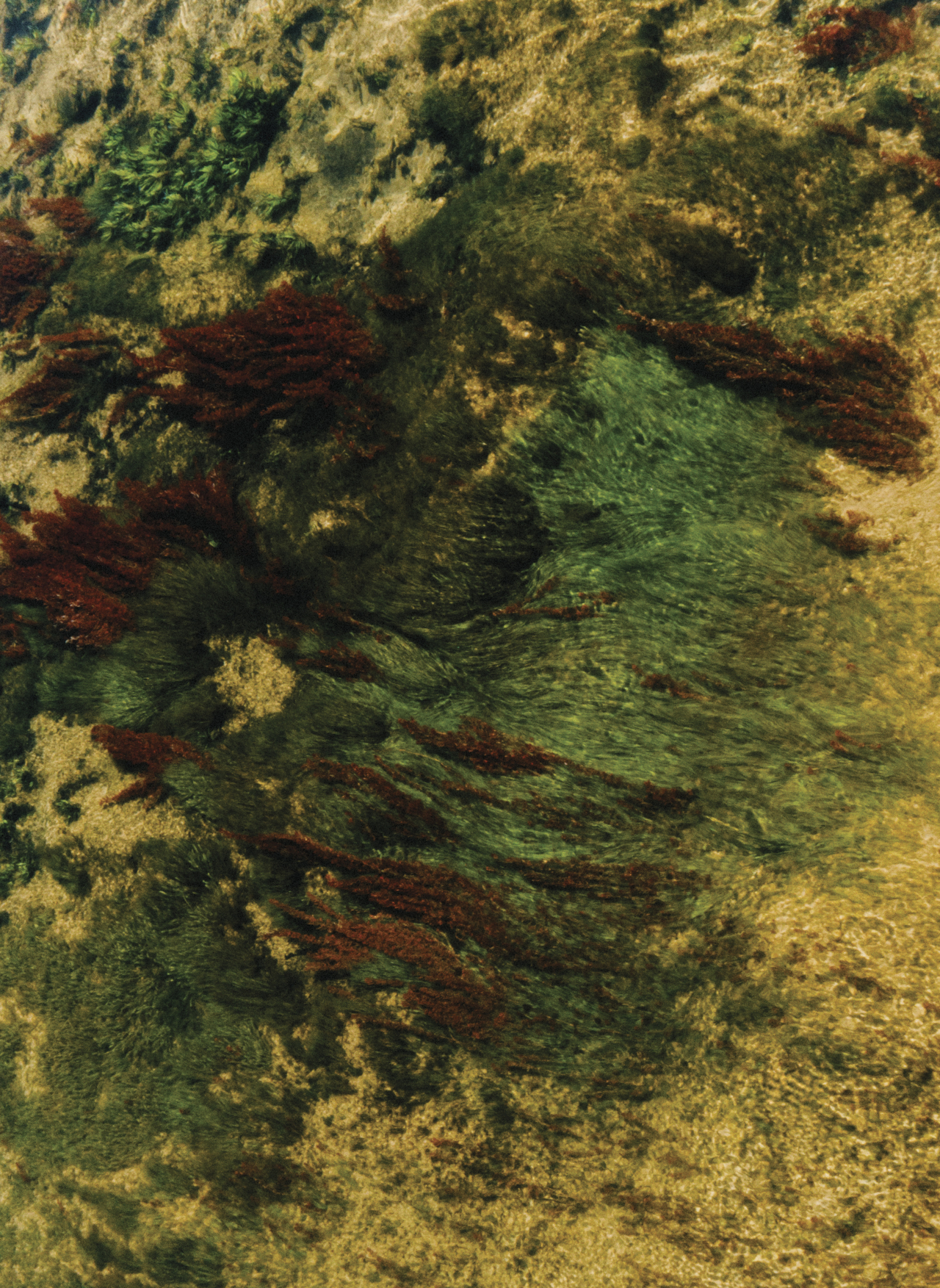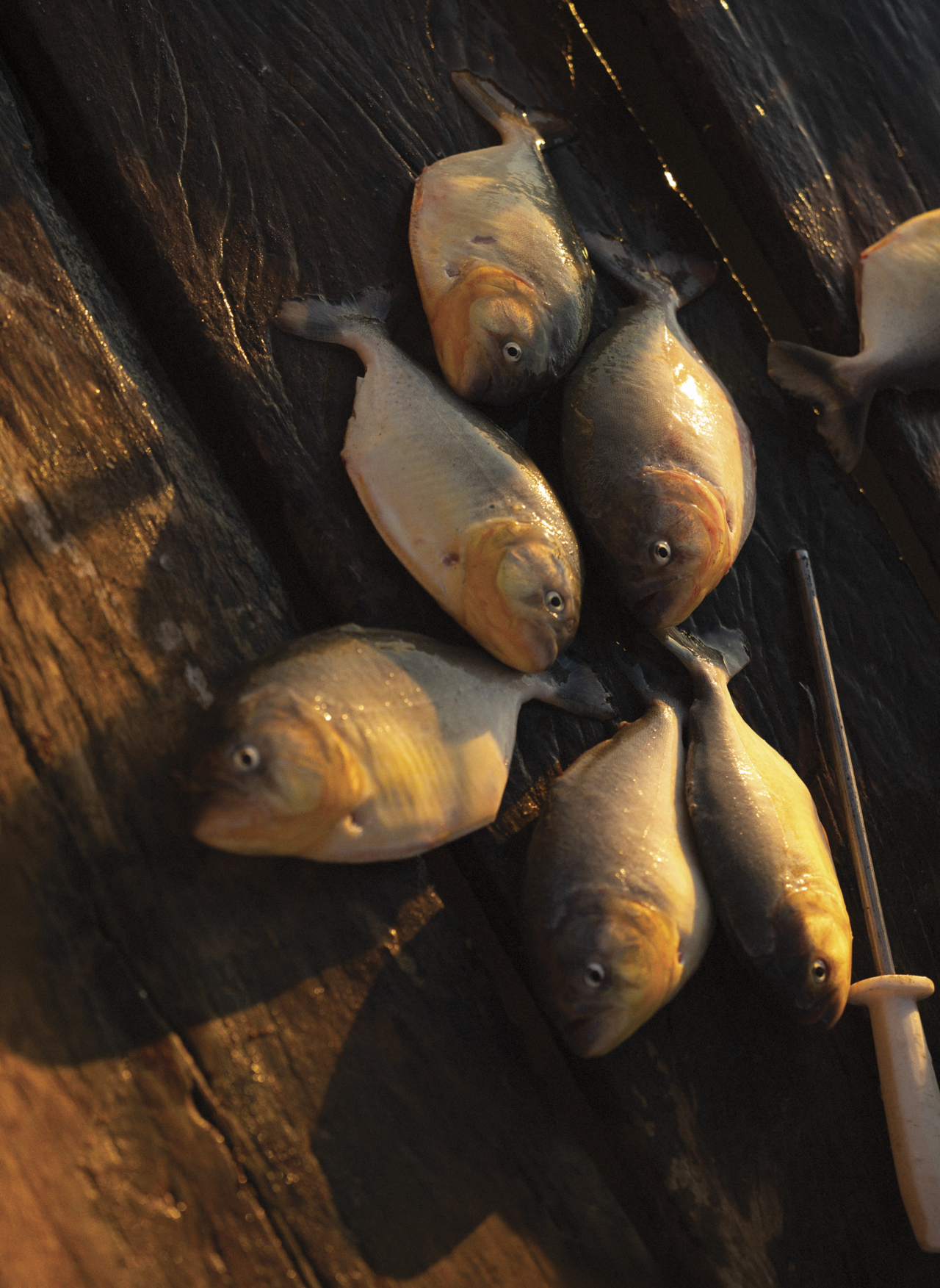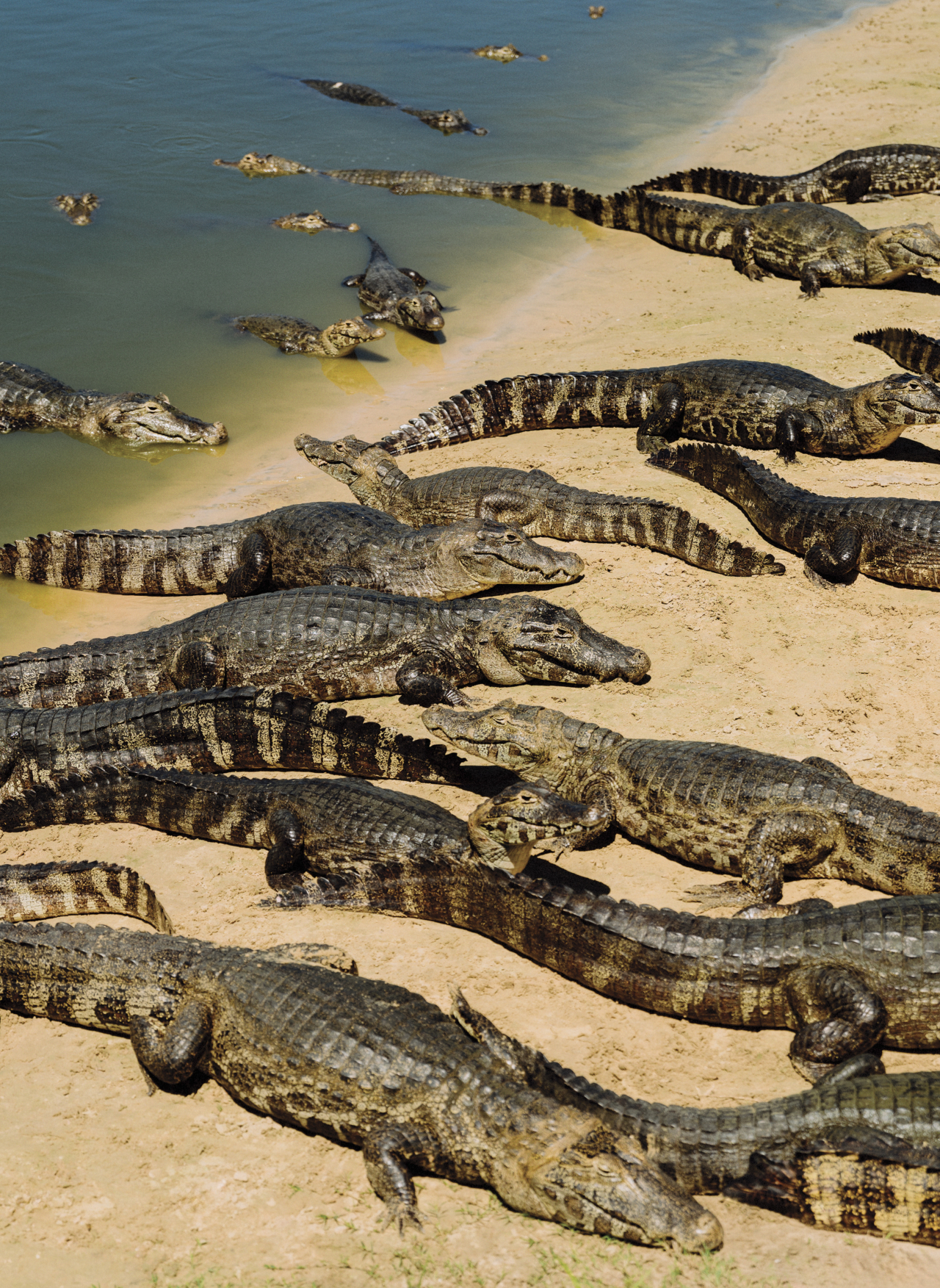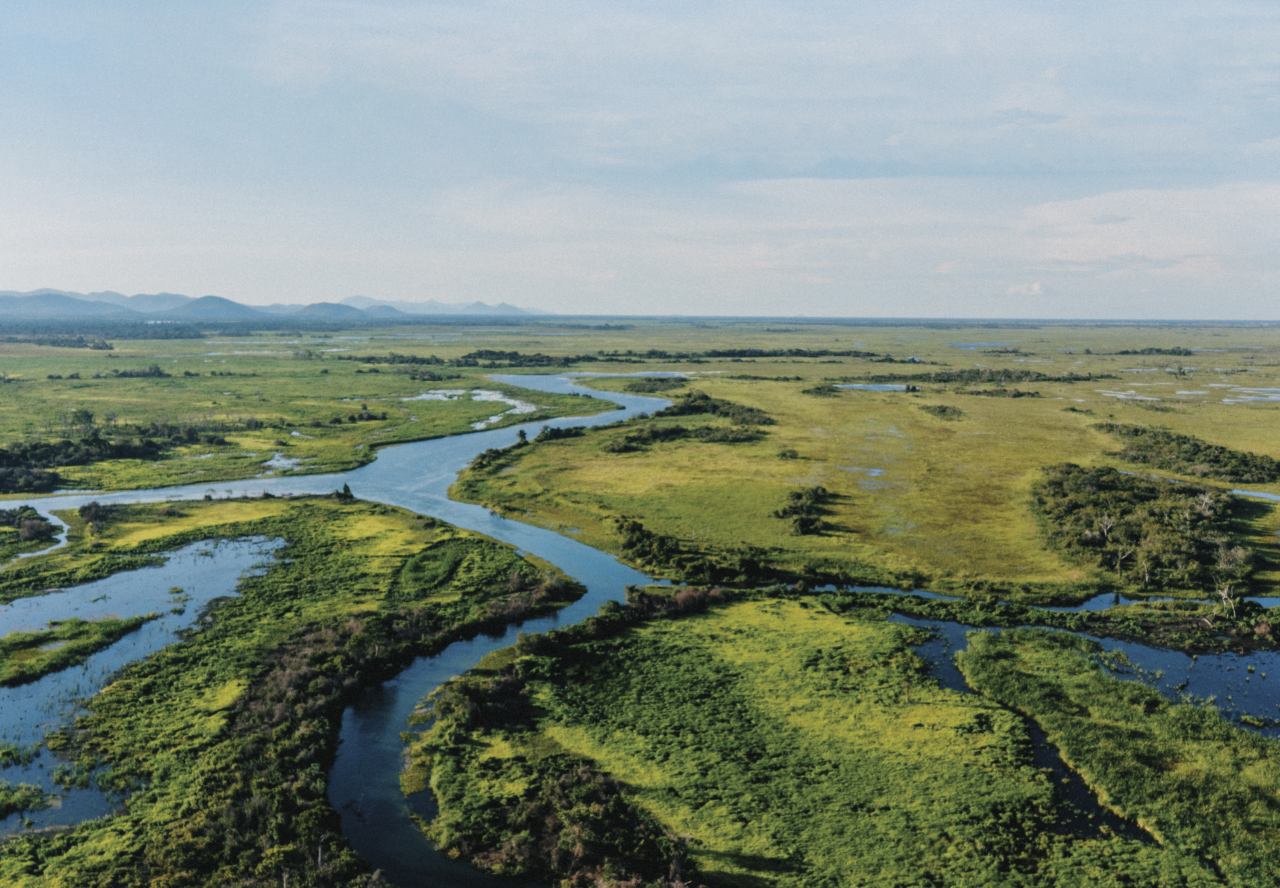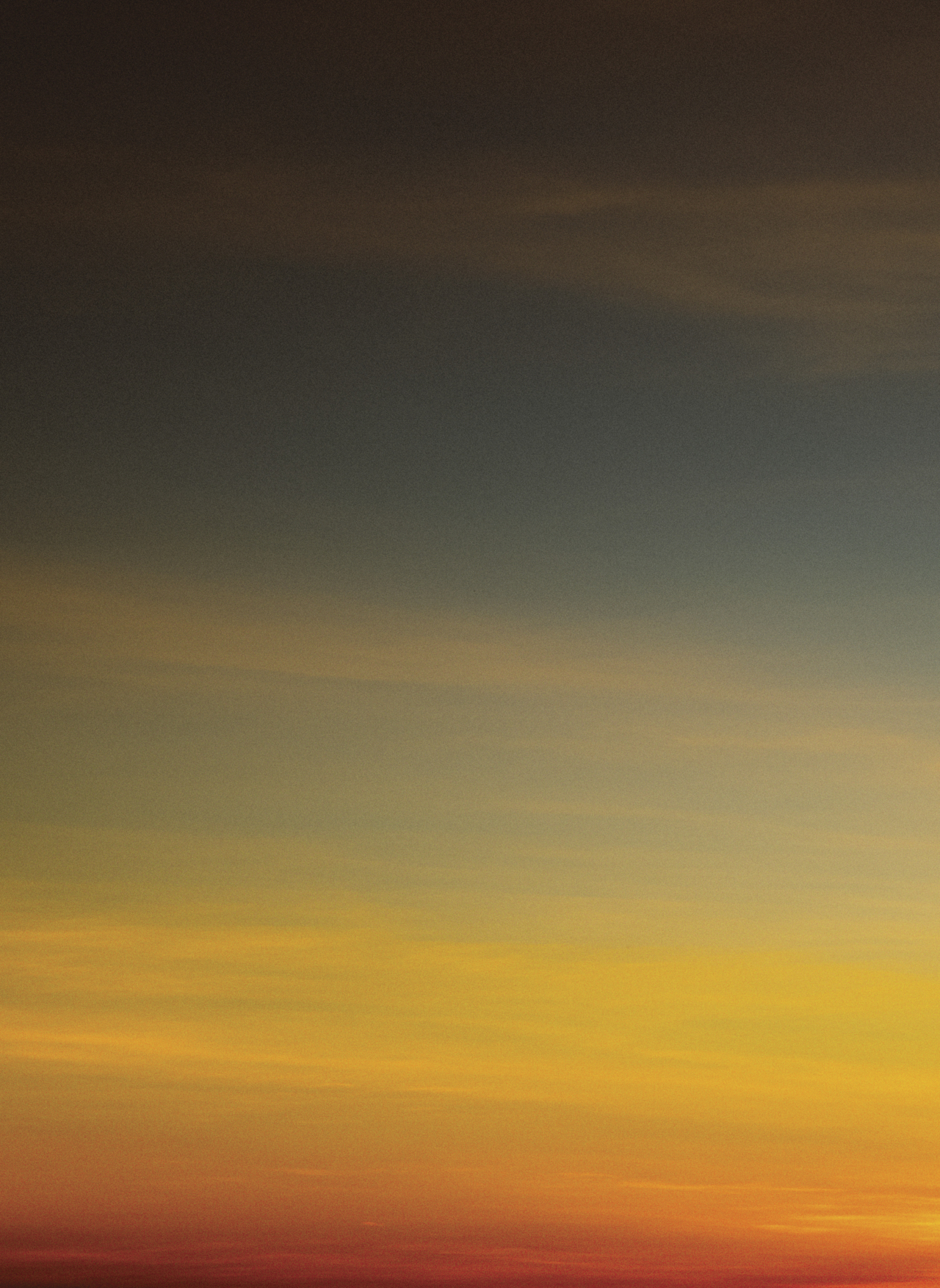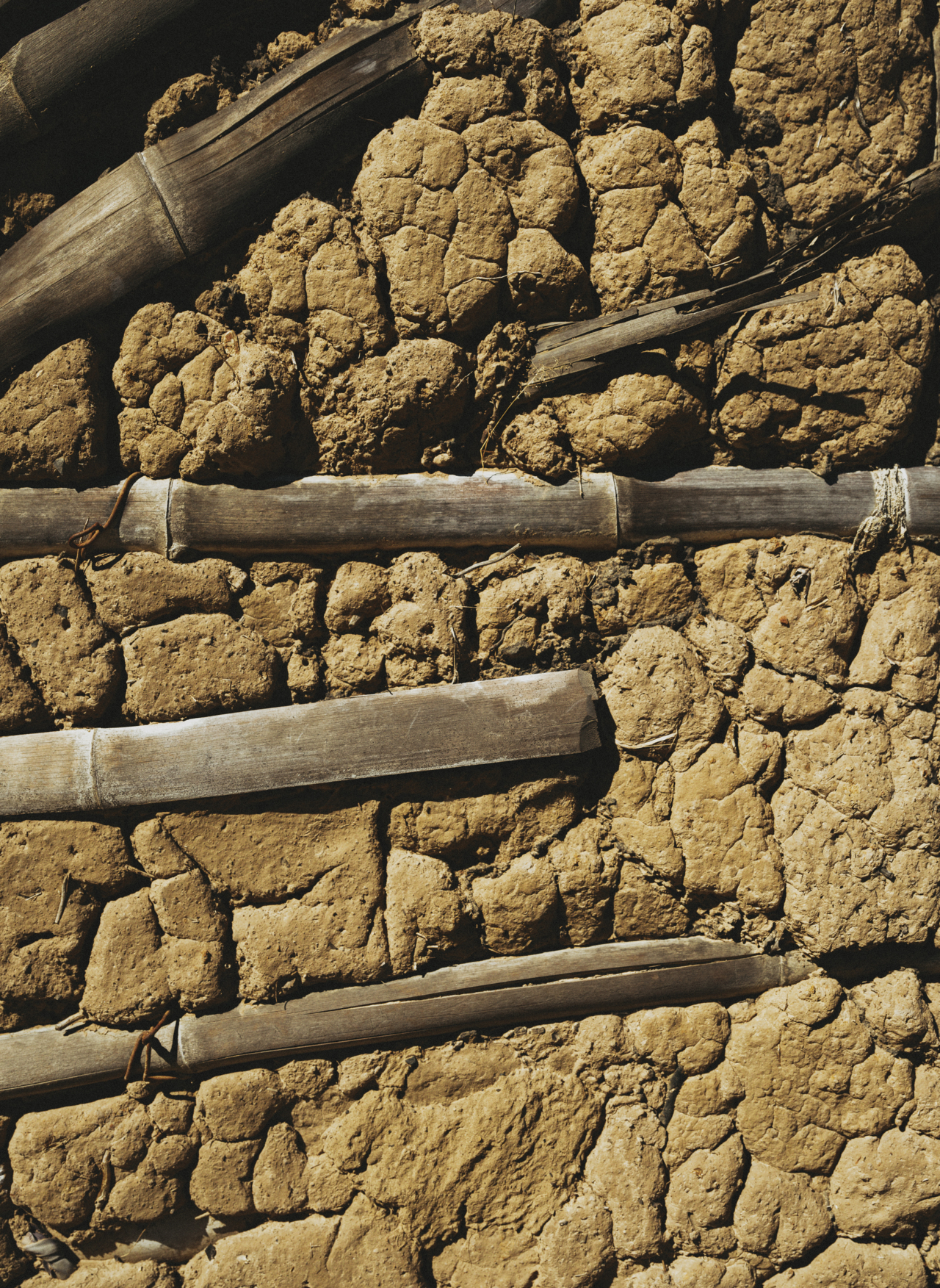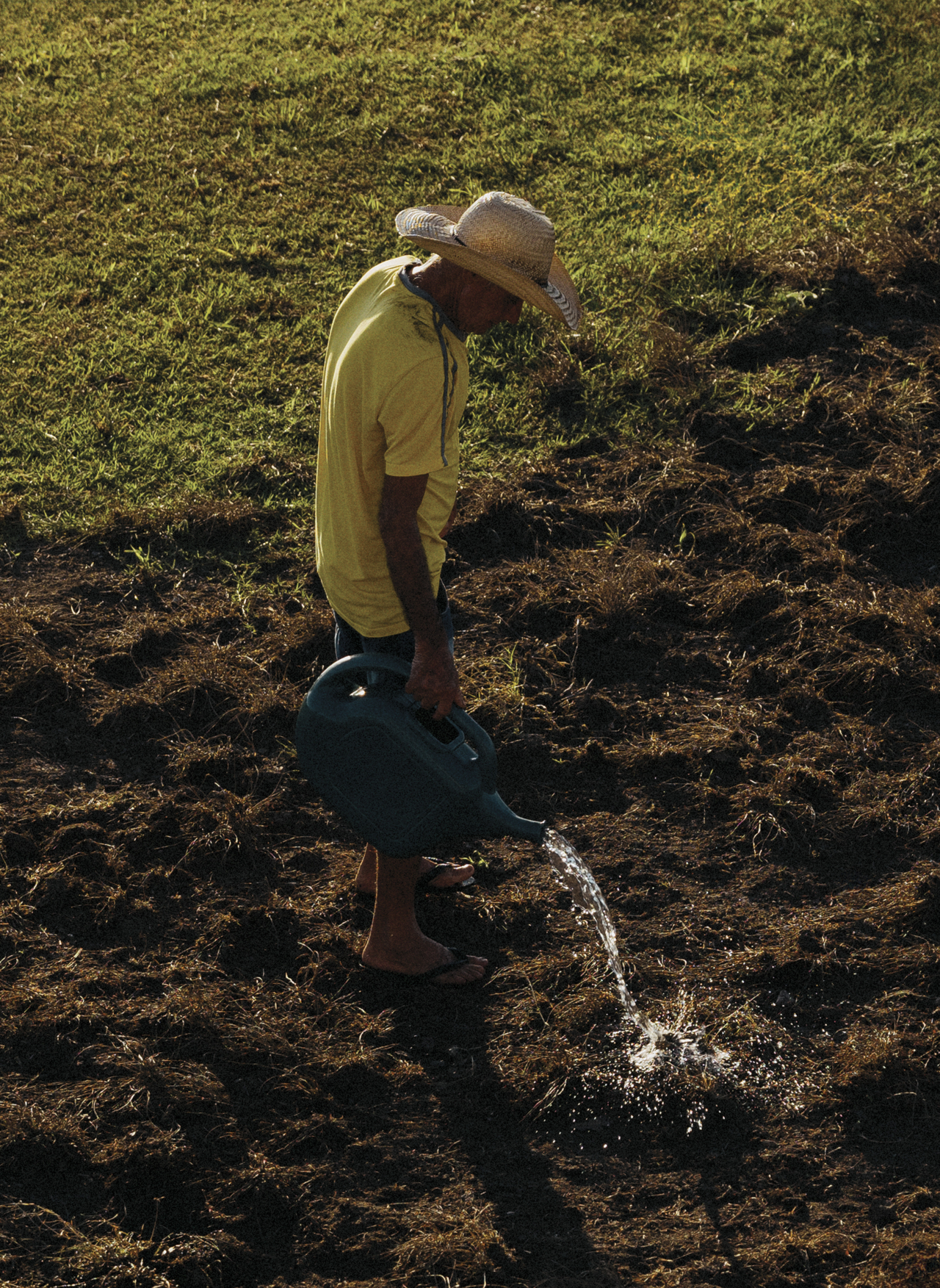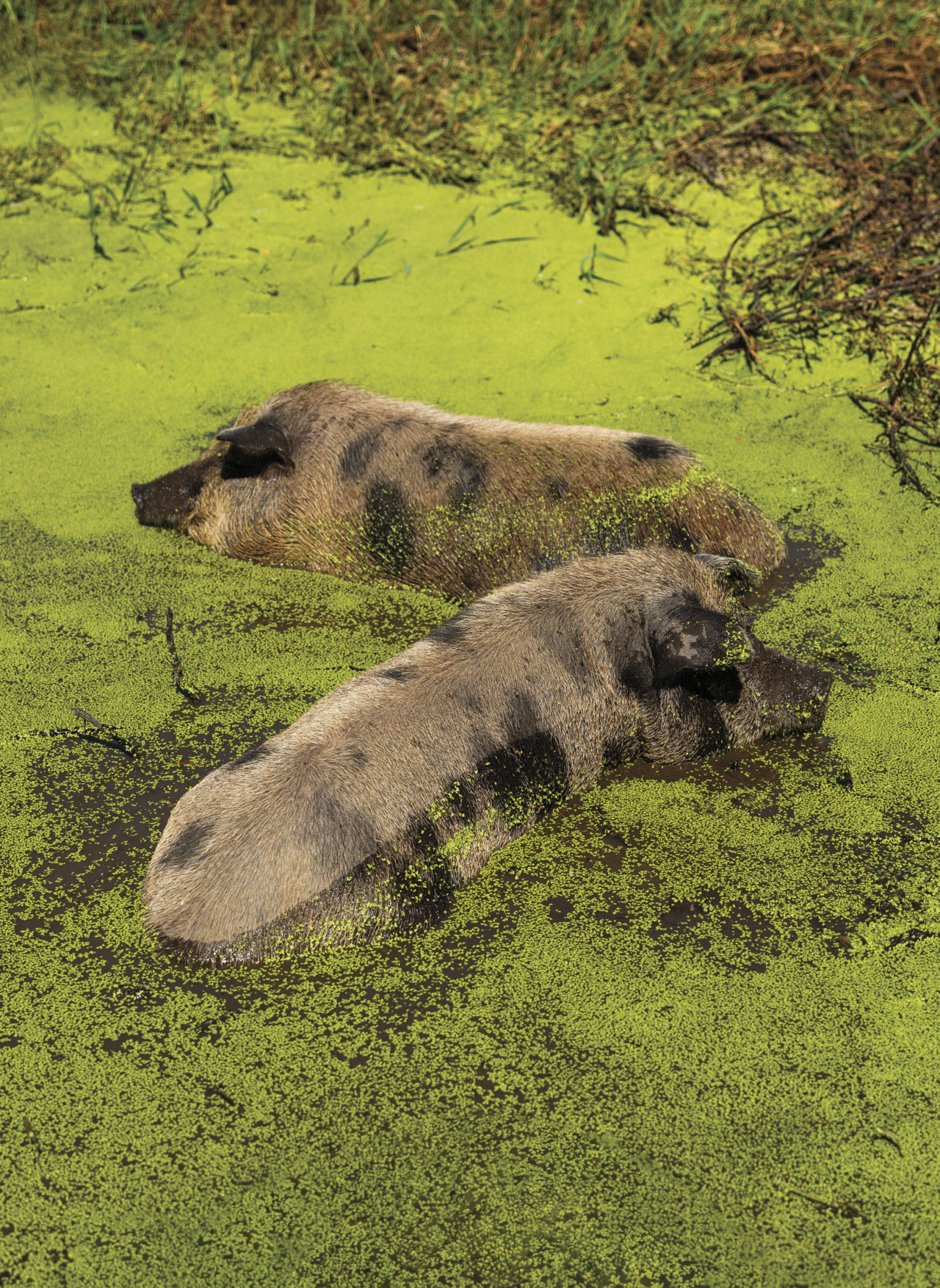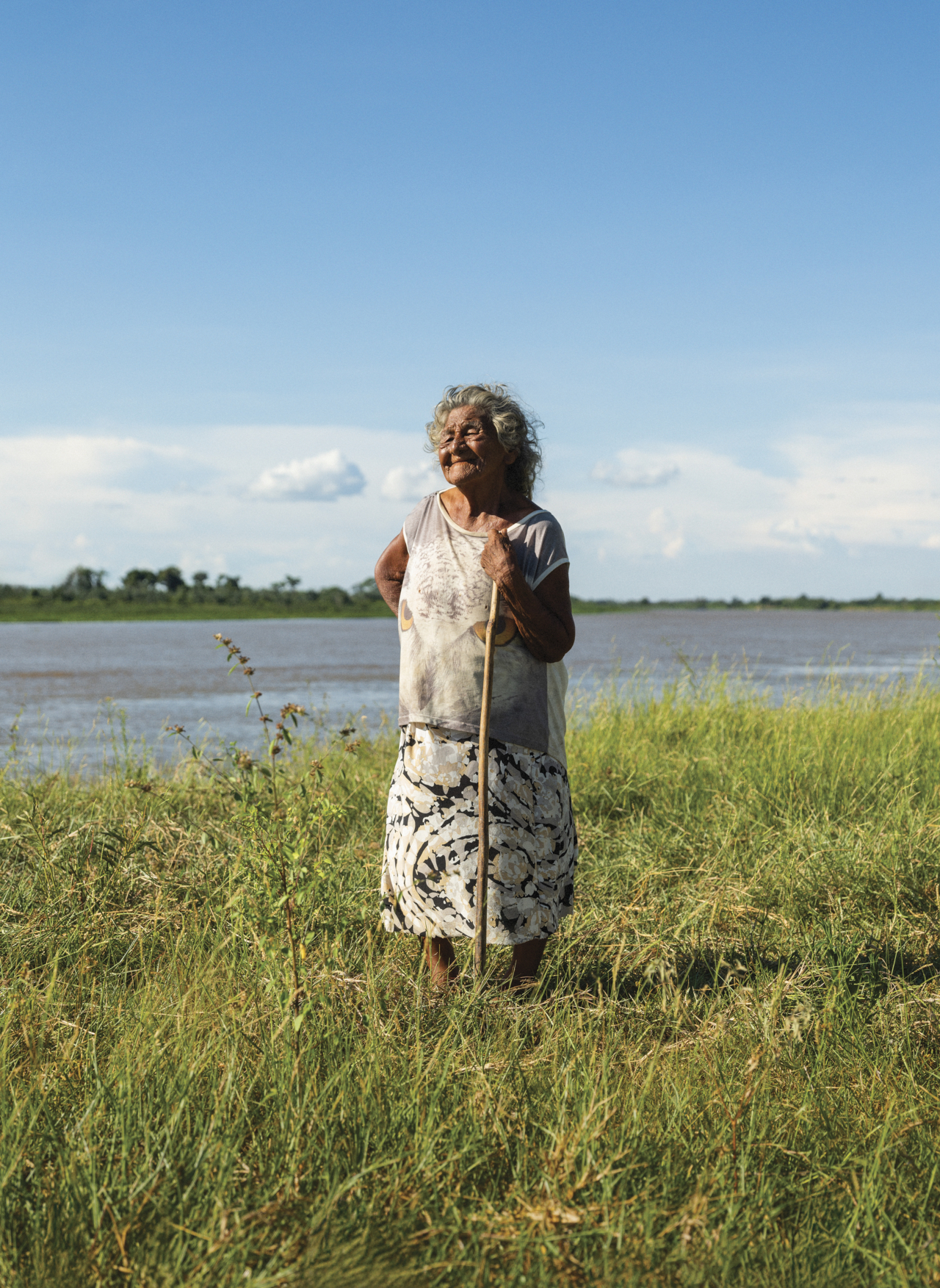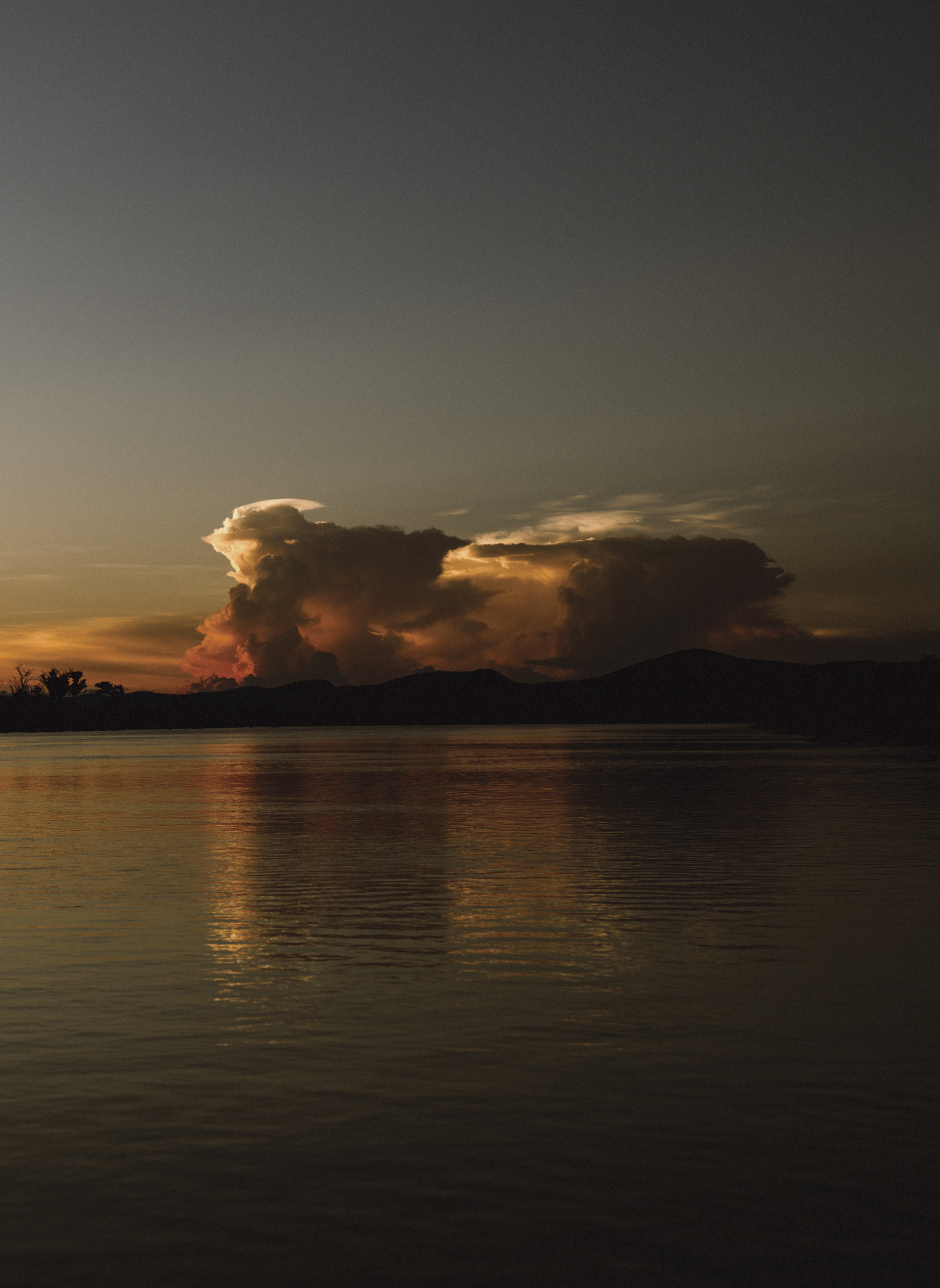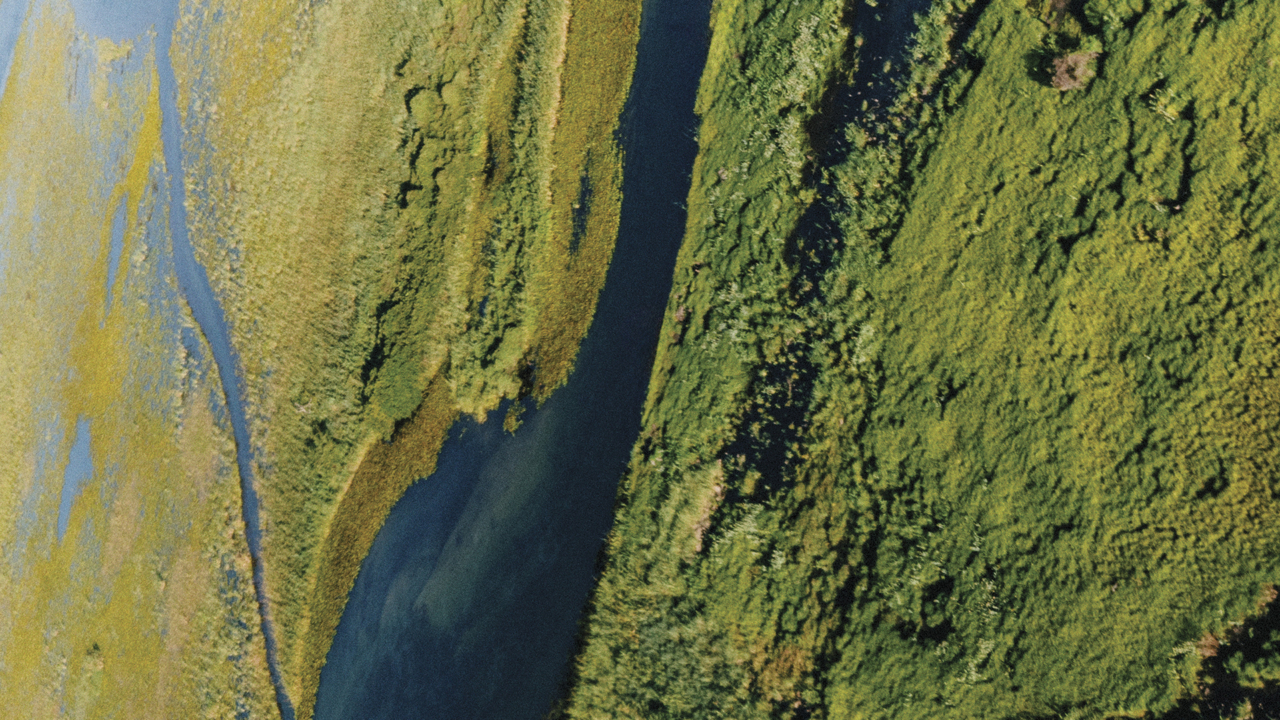
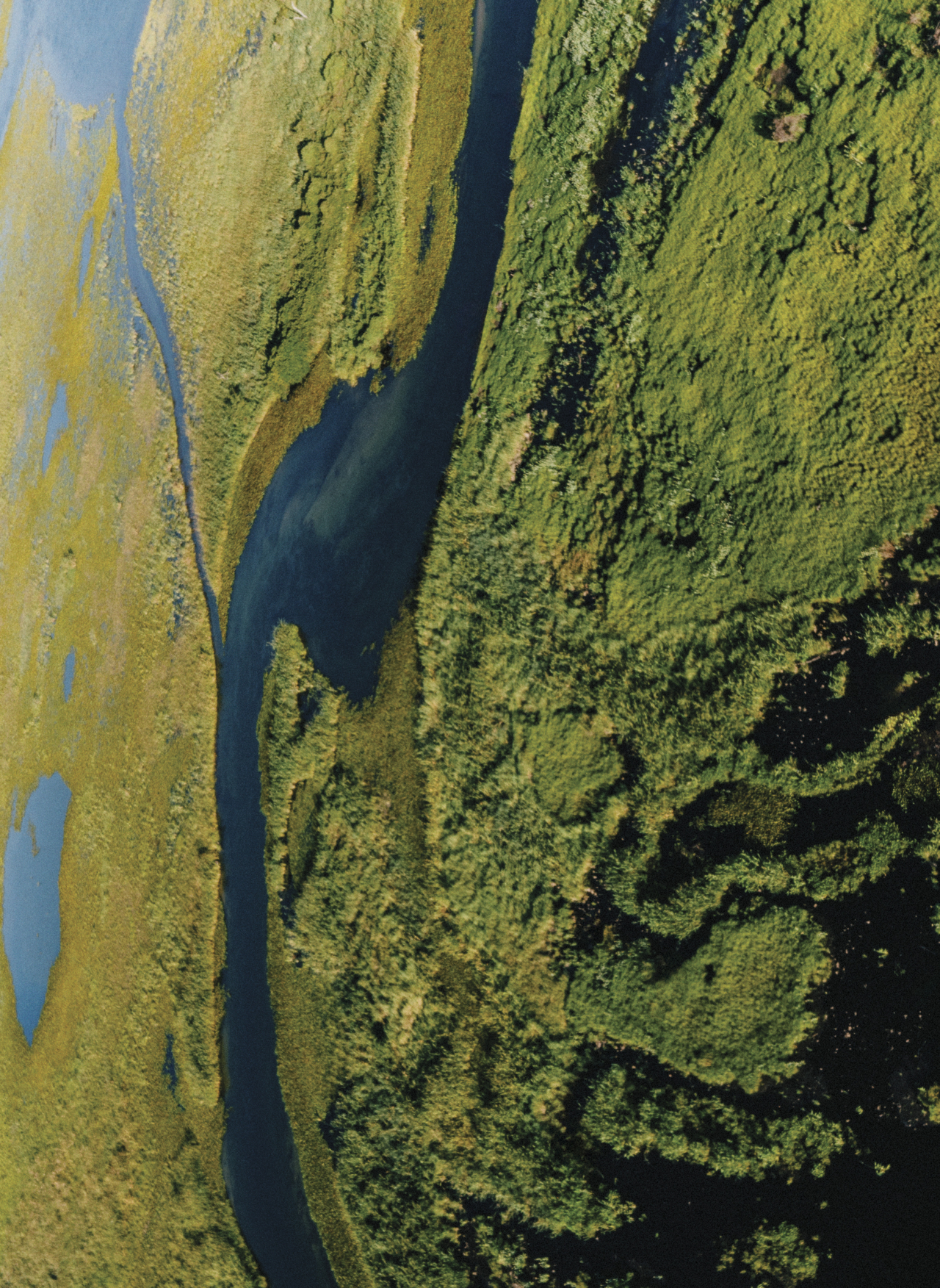
This series by Gleeson Paulino documents the Pantanal wetlands of Brazil and the local communities that inhabit the region’s riverbanks. Called the Ribeirinhos, these fishing and farming communities have molded a way of life that honors one another and their natural environment, playing a crucial role in preserving this threatened ecosystem.
Words by Sherri Mitchell Weh’na Ha’mu Kwassett
Photographs by Gleeson Paulino
“Relationships are the very oxygen of human development.”
—Dr. Karen Treisman
My ways of knowing and being as an Indigenous person are organized around a tangled web of relationships that weave me in and through all things. This awareness lengthens the scope of my life by incorporating my ancestral dead and future progeny into my immediate family. And it invites me to know my extended family by allowing me to see every other living being as my relative, which causes me to look beyond the immediate impacts of my decisions toward the rippling effects that span generations.
Yet this way of moving through the world—one rooted in deep relationship—is a skill that has not been widely taught or valued within mainstream U.S. culture. Instead, the culture esteems rugged individualism and rewards division. The separatist culture created by these choices prevents us from clearly seeing our place within the larger scheme of life, and it limits our ability to appreciate the scale of the impact our species is having on the planet.
We must move beyond our anthropocentric obsession and toward a more interrelated way of being. Engaging and maintaining a balanced kinship with the rest of the natural world offers us all the best chance of surviving into the future.


Our extreme self-focus skews all equations toward our own center—a form of collective navel-gazing—which prevents us from seeing important ethical truths.
Instead of learning to take greater responsibility for one another, we have maintained heart-wrenching dehumanization for millennia and amped up ethno-nationalist polarization. This has created new waves of intraspecies violence and set the stage for unprecedented rates of interspecies destruction. Last year, the United Nations reported the highest number of violent conflicts since World War II. In 2019, an Intergovernmental Science-Policy Platform on Biodiversity and Ecosystem Services report stated that up to a million plant and animal species were on the verge of extinction and that approximately 75% of Earth’s terrestrial area had been adversely impacted by human activity.
Our collective awareness of this violence against other human beings and the natural world has resulted in a string of new psychological conditions, such as climate anxiety, eco-grief, and solastalgia, a recently-coined word describing the emotional distress that arises from environmental change.
Engaging and maintaining a balanced kinship with the rest of the natural world offers us all the best chance of surviving into the future.
A common misconception is that violence can create safety. This framework has imprisoned us and constricted our growth by keeping us locked into repeating patterns. We have tucked ourselves into comforting bunkers, and over time, we have begun to see everything beyond our walls as our enemy or jailer, when in fact, it is our own attachment to notions of superiority and the separation it demands that have confined us.
We have engaged in the practice of othering as though it were a competitive sport, even though othering is a precursor to violence and central to ethnocentrism. The process of othering destroys any feeling of kinship or similarity between us and establishes the groundwork for discrimination, persecution, and dehumanization—a pattern followed by every genocide throughout human history.
The violence that emerges from this pattern almost always leads to some form of retributive violence by those who have been harmed. Quite frequently, this secondary violence is imposed upon successive generations who have no personal connection to the triggering event, giving rise to new generations of wronged people who will eventually seek their own revenge.



Violence will never make us safe. This has been proven by countless peoples over thousands of years.
Humans aren’t the only species susceptible to retributive violence. After an illegal fishing expedition off the coast of Spain left an orca injured, attacks by other orcas in the region increased. The injured orca, named White Gladis by researchers, and the aggression that followed, marked the first in a string of attacks on human fishing vessels. Since then, seemingly organized campaigns have been carried out by pods of orcas causing several boats to sink.
What’s most striking about these phenomena is not the social awareness and coordinated “street justice” exhibited by the whales’ interactions with people, but the human response to their actions. People were shocked that the whales were pushing back, asking, “What’s wrong with the whales?” When animals fight back, we’re shocked and outraged by their abhorrent behavior. Yet we justify, applaud, and normalize those same behaviors in our own species.
Our tendency to reduce other species to a diminished state of awareness is a symptom of our need for growth. We must develop an expanded understanding of those living among us and our interconnectedness with them.

Violence will never make us safe. This has been proven by countless peoples over thousands of years.
To move from ethnocentric ideologies toward more world-centric and kincentric ways of knowing, we have to actively work to develop our spiritual and emotional intelligence. This will offer us the spaciousness needed to gain self-awareness and awareness of others, regulate our emotions, and make better decisions for ourselves and all our relatives on Mother Earth. It also makes it possible to maintain healthy long-term relationships.
Many experts now claim that having emotional intelligence, or EQ, is more important than IQ, because it develops the prefrontal cortex, which in turn, amplifies cognitive ability.
“People with well-developed emotional skills are…more likely to be content and effective in their lives, mastering the habits of the mind that foster their own productivity; people who cannot marshal some control over their emotional life fight inner battles that sabotage their ability for focused work and clear thought,” writes Daniel Goleman.
Emotional intelligence also increases ethical decision-making. In a 2011 study published in the Journal of Business Ethics, researchers found that individuals with higher emotional intelligence held the belief that they should not deceive or cause others harm. The inverse proved to be true as well: Individuals with lower emotional intelligence demonstrated a willingness to act in ways that resulted in negative consequences for others. The development of emotional intelligence and rejuvenation of our atrophied ethical muscles are required to move us away from the false belief that violence is a solution.



As George Lakey, a revered nonviolence activist and scholar, writes: “I can’t know for sure the outcome of nonviolent or violent means ahead of time, but I can judge the ethical nature of the means itself. There is a clear ethical difference between violent and nonviolent means of struggle. On that basis, I can choose, and throw myself fully into that choice.”
There are clear ethical differences between violent and nonviolent struggle that are tied to stages of conscious human growth. Physiological life and conscious development move in stages: birth, life, death; and their parallels, egocentrism, ethnocentrism, and world-centrism. Egocentrism’s bias and outcome focus on the self; ethnocentrism’s bias and outcome focus on one’s group, and world-centrism’s bias and outcome focus on all human beings.
These developmental stages are all anthropocentric and lack consideration for other living beings. But the kincentric worldview, often found in Indigenous traditions, incorporates all life and sees the natural world as composed of relatives that must be cared for and known.

Indigenous wisdom traditions recognize that there is both individuality and interconnectedness associated with all forms of life…
Though this simple breakdown implies that this movement is linear and contained, it only represents part of the story. We grow and evolve in expanding circular patterns. If we cycle out one level from the patterns listed above, we incorporate one additional stage: to birth, life, and death, we add rebirth; to egocentrism, ethnocentrism, and world-centrism, we add kincentrism.
For quite some time our civilizations have been oscillating between the egocentric and ethnocentric stages of development. Though there is substantial evidence to suggest that a more world-centric view is emerging, we can also see that notions of ethnocentric superiority remain.
The prevalence of people who proclaim their love and support for all humankind, while simultaneously sneering at humans who haven’t attained their lofty perspective, indicates a transitional phase in our development. At the moment, we espouse the values of a higher level of consciousness (concern for all, or world-centrism), while continuing to be governed by attachment to the previous level (the need to be recognized for the superiority of our group, or ethnocentrism). We must now engage in more purposeful movement towards a new level of knowing and being.



Today, we stand at a critical intersection, where the continued habitability of Mother Earth appears to be dependent on human beings making a significant leap in consciousness. That’s a heavy responsibility, but it’s one that is born out of corrective necessity based on our collective choices.
Our best option for getting there on time is for members of the mainstream culture to begin unlearning individualistic ideologies and start embracing Indigenous worldviews that include an expanded kinship network. Indigenous wisdom traditions recognize that there is both individuality and interconnectedness associated with all forms of life, and that it is possible to honor and respect each unique expression of life without removing it from the larger system of life to which we all belong.
Traditional Indigenous communities provide the best living examples of sustainability on the planet, many having survived intact for tens of thousands of years. These communities provide ecologically diverse models for developing more connected ways of living.


Today, ecovillages across the globe are following the example of Indigenous populations and building sustainable communities. The focus in many of these communities is on developing self-sufficiency in key areas such as food, water, energy, and focused tree growth for both carbon-capture and renewable building. This is being accomplished through localized water-management practices, organic farming, soil restoration, and reforestation—all things that we can do locally.
The good news is that the defining qualities of ecovillages can be adopted by small groups of friends or large, organized communities. The key connections are found in the awareness of the harmonious relationships that exist between all living systems and a cogent respect for maintaining or restoring those relationships.
When we are in deep kinship, a space where all life is viewed as sacred and treated with reverence, we learn how to behave toward one another. We come to understand one another and to anticipate one another’s needs. Deep kinship informs us that every individual right that we profess must be balanced with a set of corresponding responsibilities to guarantee that same right for all other living beings. It teaches us that the whales, who have been trying to communicate with us, have a right to be heard and that their lives hold the same degree of sacredness as our own.
If we hope to survive into the future, we have to learn that our lives were never meant to be lived individually. Instead, we were meant to exist in a state of tightly woven kinship that enables us to harmonize our movements and enter into the universal flow that carries all life forward.


EXECUTIVE PRODUCER Yasmin Porto LOCAL PRODUCER Peralta Experience Pantanal LOCAL GUIDE Rogério Dias Moura (Tetelo) RETOUCHING Thiago Auge SPECIAL THANKS 11th House Agency, Alice Hellman, Mrs. Diva Martins, Ailton Pavão, Rosana Iris de Jesus and family
This article first appeared in Atmos Volume 09: Kinship with the headline “Kincentric Circles.”
Sherri Mitchell Weh’na Ha’mu Kwasset: We Need a Kincentric Worldview
